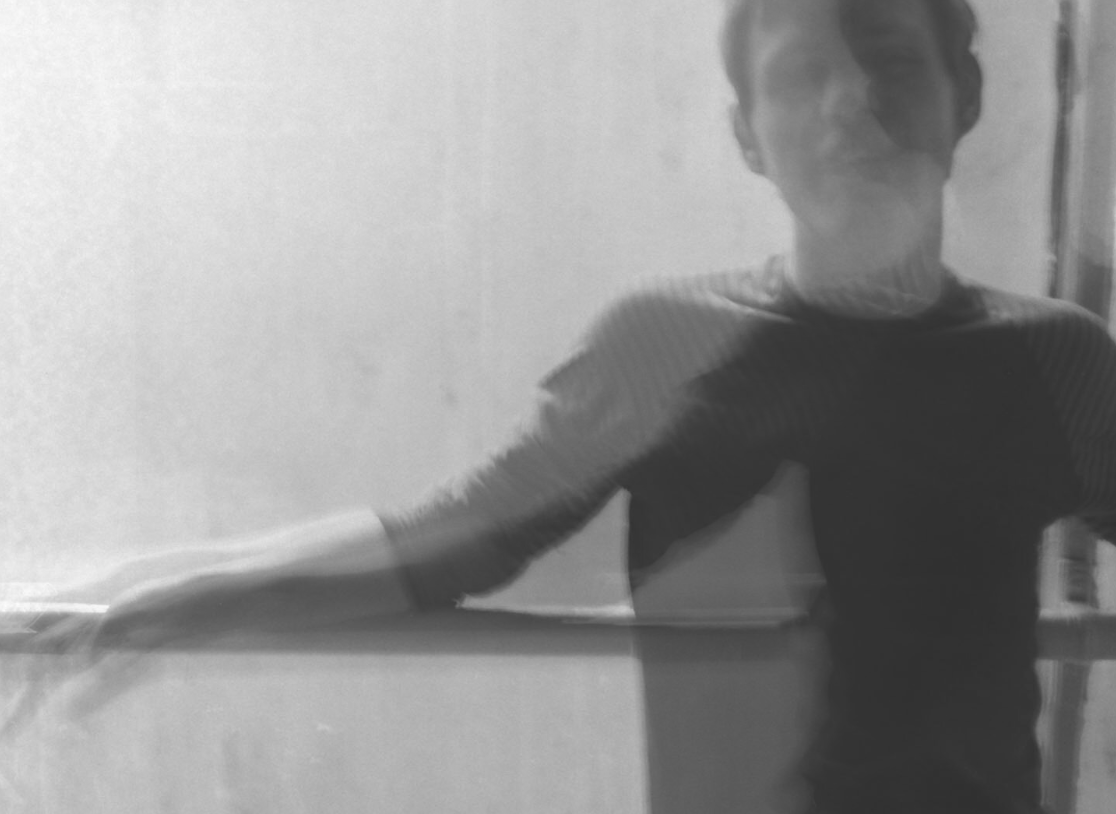
ENROLLMENT NOW OPEN
Meditation x Addiction™
Level One
3 Week Meditation-Based Virtual Group Program
Led by George Haas, Founding Teacher of Mettagroup
Saturdays, February 8th, 15th, and 22nd, 2025
9am - 1pm PT (12pm - 4pm ET)
From Survival to Thriving
Embark on an addiction recovery path that’s designed to give you a sustainable, meaningful life. End the relapse cycle, and heal the root issues that fuel your addiction.
Where addiction and attachment theory meet.
Understanding attachment theory is the easiest mind blow on the planet, and here’s why.
Once you’ve gained an understanding of the concepts and differences between attachment strategies, the addictive behavior and patterns all start to make sense.
At Mettagroup, we combine 3 ingredients to support your addiction recovery journey.
Daniel P. Brown’s Attachment Repair Model
Meditation
G. Allan Marlatt’s work on relapse prevention
This combination of frameworks and tools is what has helped hundreds of our students (including myself) earn secure attachment, heal addiction at its root, and end so many of the patterns that once held us back.
Oftentimes, my students can’t believe they’ve waited so long to make these connections.
But the good news is, it’s not too late!
In Meditation x Addiction Level One, you’ll learn:
-
How to Relieve Craving and Urging
Craving is the thought of using that arises spontaneously. Urging is the act of planning to use.
When craving arrises, how do we address it in a healthy way? And how do we end the cravings altogether?
Learn the framework for relieving craving once and for all, informed by G. Allan Marlatt’s work on relapse prevention as well as Daniel P. Brown’s attachment repair model.
-
How to Skillfully Address Stress, Anger & Depression
With addiction, a lot of afflictive strategies arise, creating intense states. Stress is anything taking us out of balance. Anger is one of the main things that the mind generates to manage emotional dysregulation. With anger, the escalating thought cycles then overwhelm the physical capacity of the mind to tolerate the neuro-chemicals, and the limbic system subsequently shuts down.
This is what results in depression, for addicts, what we call Atypical Cycling Depression is the most common.
This emotional cycle is what leads to relapse. In Level One, we’ll learn how to address those emotions and end the cycle. We’re no longer depressed and angry. What’s better than that?
-
Relieve Persistent Negative Emotions
This is the somaticized emotional experience. When addiction is one of the main means of regulating in a home, the child is overwhelmed by the experiences in the household. These are then dissociated and stored in the body for later processing (as a way to address that overwhelm). This then sucks up a ton of energy, and creates long lasting negative states, which we use substance to manage.
In Level One, you’ll learn the techniques for addressing the somaticized emotions, and how to process your emotions completely in a way that feels manageable.
-
How to Navigate Difficult Interpersonal Relationships
The main cause of relapse is painful interactions with people. We addicts notice a creeping sense of disappointment that interferes with our willingness to maintain relationships. Addiction is an avoidant strategy: we don’t want to depend on people for emotional regulation, so we depend on substances or processes (not people).
But the physical body isn’t meant to be outside of the relationship with other beings. This then creates a pain cycle when isolation happens.
In Level One, we’ll learn how to have functional relationships, so that we’re no longer constantly under threat to relapse.
We’ll walk away understanding the nature of collaborative relationships and how to develop the skills to participate in these supportive relationships.

What’s Included
-

3 Live Group Immersions
3 Live Sessions | 4 hours/session | Replays Provided
Dates: June 29 | July 6 | July 13
Time: 9am - 1pm PT (12pm - 4pm ET)We offer a blend of learning, practice and connection to help you engage the concepts and get on the path of healing.
In each session, you’ll learn the psychological and meditative philosophy to support your addiction recovery. You’ll also receive live guided meditation to help you experientially integrate the framework, where we explore IPF (Ideal Parent-figure Protocol) as well as other techniques in real-time. You’ll get to share, connect, ask questions and integrate in a community setting, with facilitator guidance.
-

The Attachment Repair Meditation Library
Healing and skill development requires consistent meditation practice (especially if you desire lasting impact).
That’s why we offer a course library which includes the targeted guided meditations to support you in earning secure attachment, repairing old patterns, and cultivating greater compassion, equanimity and loving kindness.
-

Peer-to-Peer Practice Opportunities
Collaboration skillfully is trainable.
Throughout this group program, you’ll have the opportunity to participate in dyads with fellow students. This is designed to help you get a sense of how your attachment strategy is functioning. Not only that, but this type of connection gives you an opportunity to practice skillful collaboration.
NEW FEATURE
When you join Meditation x Addiction Level One, you’ll receive our brand new printed Meditation x Addiction chapbook.
An Effective Compliment to your Current Recovery Plan
Where does Meditation x Addiction Level One fit within the greater recovery landscape?
Multiple recovery programs, including 12 step recovery, are centered on stabilizing abstinence. This is a vital stage of addiction recovery, and an important starting ground.
The next important stage of addiction recovery is about getting to the root of the addiction cycles. This is where doing the deep work of uprooting the native attachment conditioning comes in.
This second stage isn’t a centerpiece of most mainstream recovery paths.
If you only focus on stabilizing, then you might notice:
You relapse at some point (even after long periods of abstinence)
The quality of your relationships doesn’t change much. You’re still in difficult relationships that sap your energy, time and resources.
You continue isolating
For sustainable, successful addiction recovery, it’s key to focus on both stabilizing abstinence and uprooting the native attachment conditioning.

In Meditation x Addiction Level One, we directly address the underlying cause of addiction and help you uproot the native attachment conditioning, in support of relapse prevention and long-term, sustainable repair.
About The Curriculum
Mentalizing
+ Emotional Regulation
In Meditation x Addiction Level One, we focus on strengthening your mentalizing skill in support of relapse prevention and healing the root cause of addiction.
Shift from being constantly swept up by big emotions (and falling into addiction and shame spirals), to skillfully navigating your relationships and internal system with empowerment, equanimity and ease.
About
Mentalizing is essentially your capacity to monitor the dynamics of the exchange with someone else, so that you can keep within a range of secure communication. As a skill-set, mentalizing as an adult means that you can track the following four things continuously.
✔️Understanding what you want to communicate
✔️Expressing it in a way that the other person will understand what you’re attempting to communicate
✔️Tracking their reaction
✔️Modifying your understanding of the relationship based on their reaction
The Problem
Some of us with attachment disturbance didn’t develop this skill. So, we struggle with collaborating with others (and this results in feeling challenging emotions and constant conflict). This can keep us in the cycle of addiction or relapse. We can’t understand what other people are talking about, and we can’t get the sense that they understand us, so we stay caught in cycles of feeling emotionally dysregulated and needing to regulate the emotions using the only tools we have access to: substance or behavior.
Moving Beyond Addiction
By learning how to effectively mentalize and emotionally regulate, you can collaborate with people (your romantic partner, friends, family, colleagues, and clients), in a way that makes you feel connected, seen and understood, delighted in, and even loved. This then opens to greater capacity and energy to explore (and tap into more meaning). Your capacity to do this then relieves the addictive behavior, replacing it with new habits and thought patterns. People no longer appear dangerous, so we no longer have to avoid them.
“I just want to share, that it's been six years, a big journey, a big journey.
But guess what? I've earned secure. Today I found out that I've earned secure. I know a lot of you won't know what that means, but some of you might. I got my attachment assessment inventory back today and I'm secure. I'm better than I've ever been.”
-Sia, Pop Star
I’m George Haas, and I’m glad you’re here.
I’m Founding Teacher of Mettagroup, an organization committed to helping people heal their attachment injury, be more secure and live a truly meaningful life.
I had a lot of difficulties in my early life, and there was no way to get people to help me with them.
Today, my main drive in offering the Meditation x Attachment program series is simple…
It’s payback. Not the revenge-type. My mission today is to pay it forward, honoring the people who helped me save my life.
Over the last 40 years, I have accumulated this knowledge about how to heal attachment injury (through both learning and experience). My mission in this program (and at Mettagroup at large) is to share this blueprint in a distilled, manageable way so that people don’t need to go through years of confusion and suffering like I did.
Within 40 to 150 sessions, studies show that you can go from insecure attachment to securely attached. That’s profound, swift results (we’re talking ~ 3 years). I spent most of my life (5 decades) exhaustively exploring all the wrong paths, so it’s my true honor to share what’s worked for me and hundreds of my clients, with long-lasting and life-enhancing effects.
“His experience as a meditation teacher and practitioner and as an expert in Ideal Parent Figure protocol, combined with his warmth as a human being and the way that Mettagroup systematizes and structures the journey from insecure to secure attachment... I've never had so many moments thinking "that is exactly what I am going through" or "wow, finally I'm hearing what I've always felt but could never quite put words to." If you're on the fence, allow yourself to take the healthy exploration and sign up.”
- Aasheesh Paliwal
“There is no one on earth who explains attachment theory and gives a clear roadmap for how to repair insecure attachment and build healthy self esteem better than George Haas.”
“I found that your teaching provided me with essential tools in my meditation practice: namely the development of sensory clarity, dismantling of self-generated anger, and the development of an equanimity practice.”
“Working with George Haas and Mettagroup was the best decision of my life. In under four years I moved from a highly disorganized attachment style to earned security. Now my days have a sense of happiness and purpose that I never thought was possible before. I’d recommend George to anyone.
- Evan Leed
Walk away with
Less Stress, Less Relapse
In this program, you learn how to improve your mentalization skills, which minimizes the friction and stress that comes up in relationships. Not only that, you’ll learn how to emotionally regulate. Whether you feel anger, sadness, joy, anticipation, or resentment, you’ll be empowered to navigate your emotional landscape skillfully and come back to a grounded, centered state.
Be Reliable and Consistent
So many of us struggling with addiction have a hard time being reliable and consistent in our lives. We say we’ll do something, and don’t follow through. We make commitments to ourselves, only to fall back into a destructive pattern or relapse cycle (which takes us into the shame spiral).
In Level One, we’ll teach you the skills and tools to help you ultimately be more reliable, consistent and show up for your commitments, your goals and the people in your life.
Healthy Coping Mechanisms
Turning to your substance or behavior of choice to self-soothe will no longer be top of your list (or even on your list) of coping mechanisms. You’ll learn sustainable strategies, including meditation and connection skills, to help you feel your best and tap into your authentic self (more often).
Pursue your Passions + True Purpose
When we uproot the attachment conditioning and stabilize abstinence, we can open up to our authentic passions with so much more energy and interest. This path creates space for you to know yourself fully and authentically, and to embrace your passions (perhaps for the first time in your life). An ALIVENESS is untapped, along with greater energy, inspiration and motivation.
Connecting with Others Feels Meaningful (Instead of Daunting)
Nurturing your connection with others is what allows you to have a more meaningful life. But for people strruggling with addiction, connection might not feel safe or desirable. In Level One, you’ll walk away with a better sense of how to organize your intimate relationships so that you have more support. And not only that, by uprooting the attachment conditioning and retraining how you orient toward others and the world, you’ll shift out of isolation and open to connect with more ease, trust and consistency.
How this addiction model came to be
He began his own path with a period of lightweight spiritual seeking (and heavy-duty drug and alcohol use).
George got sober through 12-step recovery at the age of 24. In 1978 he embarked on a serious exploration of the eleventh step of the Twelve-Step tradition, working primarily with concentration to reduce the anxiety of living sober.
Subsequently, he began walking the Red Road (traditional Native American spiritual practices) and reading Buddhist texts in the 1980s to help make sense of the mounting AIDS crisis.
“With 40 years of sobriety and over 30 years of psycho-therapy, I found myself in a place where the old patterns that I developed in my crap childhood were still there, resiliently holding on tight. I found that the ordinary unhappiness of life was too much.”
That’s when I committed to a new way.
I discovered meditation and attachment theory, and the rest is history.
-George Haas
What Makes Us Different
What We Are
Post-acute treatment.
For people looking for long-term sobriety in their abstinence and harm-reduction program.
We offer both stabilization and uprooting the native attachment conditioning.
Meditation-centered.
Get ready to engage formal meditation practice across all our programs and services.
Fast and efficient.
Studies show that within 40-150 private sessions, you can go from insecure to earned secure attachment.
We teach about collaborative relationships.
Mutually supportive, reliable and willing to meet the needs of others (while getting your needs met, too)
Committed to long-term, sustainable shifts.
Not only that, but these shifts become automatic and seamless: the fabric of your new life.
What We Are Not
We are not a detox or an acute treatment program.
We are not a drop-in recovery group.
We offer immersions, group and 1.1 programs to support you in learning key skills, connecting with fellow practitioners
We do not teach how to have
transactional relationships.
If you’re interested in continuing down this road, this isn’t the right support system for you.
This is not a therapeutic program, or a substitute for therapy
but rather is a meditation training. If you’re looking for therapy, this isn’t it. Please seek it elsewhere.
A generic mindfulness program or app.
We teach industrial-strengthened, targeted meditation techniques to directly support you with healing your attachment disturbances and earning secure attachment.
Schedule a Free Consult Call
Schedule a call with the Mettagroup team to ensure that this program is the right fit for you, and to ask any questions you have at this time. Click below to schedule a free consultation call.

FAQs
-
No problem! While we do strongly recommend that you attend as many live sessions as you can, we understand that life happens. You will have access to all session replays for life. These will be sent to you after each live session, and will be housed in an online course for easy access.
-
FAQ answer
-
Commonly referred to as "mindfulness," Vipassanā meditation is focused on living more peacefully, compassionately and wisely. Derived from the Theravada school of Buddhism, the techniques are widely acknowledged as effective ways to manage pain, stress, compulsiveness and are often used in conjunction with psychotherapy.
-
Many of our clients feel this way when they arrive. We invite you to explore the possibilities that live in the Mettagroup approach. If you’re open to practicing meditation and exploring attachment theory more fully, then this is a good fit for you. This approach does require effort, but if you’re willing to put in the time, energy and resource, then it can truly be worth it.
-
You have access for life.
-
No. We cannot tell you what your attachment strategy is without an Adult Attachment Interview.
This is not included in Meditation x Attachment Level Two program, but is available for purchase separately. Click here to reach out and sign up for an Adult Attachment Interview.
-
No. This is a meditation-based program that requires consistent effort and practice, so it will not work unless you’re willing to practice.







